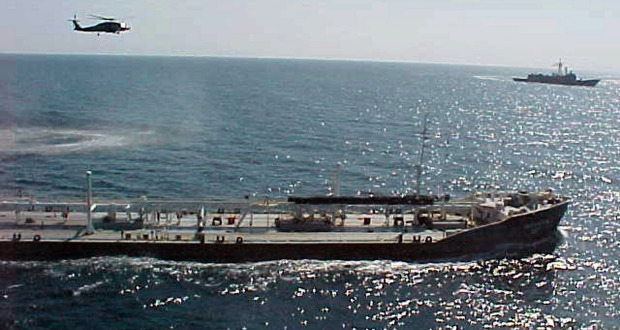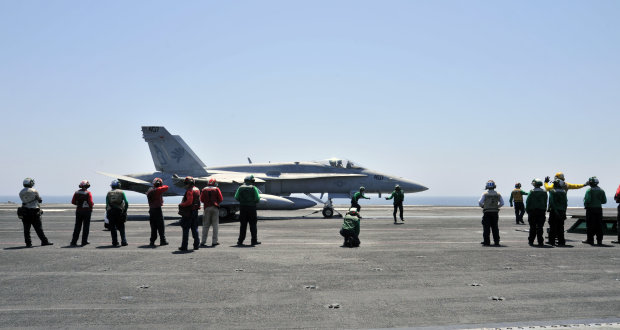Stina Hartikainen
October 28, 2014
Europe, Latest Articles, The Policy Unit
On 3 October 2013 a boat carrying over 500 migrants from Eritrea and Somalia sunk off the coast of the Italian island of Lampedusa, leading to the deaths of over 350 people; a few days later, a second incident occurred adding at least another 34 lives to the death toll. Following the tragedy of Lampedusa, the EU and its member states pledged that an end must come to migrant deaths in the Mediterranean, with the EU Parliament calling the incidents a turning point towards a new policy guided by ‘solidarity and responsibility’.[1] One year on, the pledge echoes hollow as new reports of incidents across the Mediterranean surface weekly.
Read More »
admin
October 27, 2014
Latest Articles, Press Releases
Yesterday marked the end of combat operations in Afghanistan for the British armed forces. Over 13 years of conflict have ensued since the US invoked Article 5 of the Washington Treaty in the wake of the 9/11 terrorist attacks. Afghanistan ...
Read More »
Andrada Filip
October 23, 2014
Iraq and Syria, Latest Articles, Middle East and North Africa
On the 21st of August 2013, the biggest chemical weapon attack since the tragedy of Halabja, in 1988, occurred in Syria. The US had detailed evidence of strategic planning on behalf of the Assad forces, leading up to the attack. A report released by the White House on the 30 August 2013 stated that the Assad regime was keeping track of all those targeted in the chemical weapons attacks from the East Ghouta region of Damascus, which lead to the deaths of 1,400 people.
Read More »
admin
October 21, 2014
HSC in the Media, Iraq and Syria, Latest Articles
Julie Lenarz, Executive Director of the Human Security Centre, and Simon Jenkins, the author and journalist debate British military action in Iraq on Channel 4 News with Jon Snow.
Read More »
Matthew Lower
October 21, 2014
Latest Articles, The Americas, The Policy Unit
Since a 2006 crackdown by the Calderon government against drug cartels operating within Mexico, some estimates put the death toll as high as 120,000.[1] Despite staggering statistics such as these and multiple acts of public brutality, the conflict - and its severity - remains a relative unknown in the West.
Read More »
admin
October 16, 2014
Evidence to Parliament, Latest Articles
The Human Security Centre is pleased to announce that the UK parliament’s Defence Committee has published our submission on future force 2020 as official evidence. You can read or download the full report here.
Read More »
Emily Daglish
October 15, 2014
Latest Articles, The Policy Unit
Sanctions have become an increasingly popular method of discouraging groups, states and individuals from violating international law and norms. Blacklisting groups became particularly popular after 9/11, after which a number of anti-terrorist legislations were passed by the UN and its member states, including UN Security Council Resolution 1373, the US Patriot Act and the UK Anti-Terrorism, Crime and Security Bill.
Read More »
Rowan Allport
October 7, 2014
Asia and Pacific, Latest Articles, Security and Defence, The Americas
Whilst both Vietnam and the US suffered a massive trauma as a result of the conflict between the two countries, the status the war occupies today in these nations is more as a set of personal tragedies, rather than a cultural and institutional monolith that defines the relationship between them. If handled correctly, enhanced collaboration could offer the prospect of massive and almost cost-free foreign policy benefits for both countries.
Read More »
Marc Simms
October 7, 2014
Latest Articles, Middle East and North Africa, Security and Defence
The Somali terrorist organisation, al-Shabaab, have not been having a very good month. Firstly, they have been suffering a string of defeats in their conflict with the Somali government and African Union forces, capitulating and allowing key towns to be captured with little in the way of resistance.
Read More »
Marc Simms
October 2, 2014
Latest Articles, Middle East and North Africa, Security and Defence, The Americas
On Wednesday, the US House of Representatives backed plans proposed by President Obama to curtail the threat posed by ISIS (also known as ISIL or the “Islamic State”).
Read More »

 Human Security Centre Human Rights and International Security Research
Human Security Centre Human Rights and International Security Research


